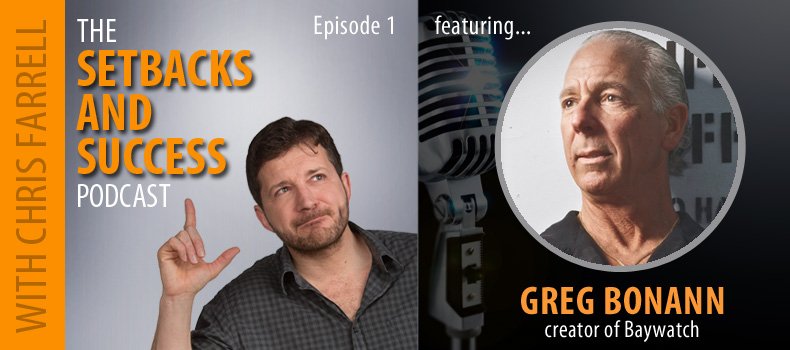Everyone loves showing off how great the “entrepreneurial lifestyle” is once they’ve achieved success. But not very many people are too open about the process along the way—and that’s because it’s not as glamorous as the motivational quotes on Instagram make it seem.
Any real entrepreneur will tell you, once they’ve done something worth celebrating, that the journey to success is not easy. It’s not a straight A to B path, and it certainly doesn’t happen while you’re sitting on a beach sipping Pina Coladas. The road to success is often trodden with mistakes, failures, disasters, and never-ending worries that today is the day it all comes to a screeching halt.
These are the stories that need to be told, to shed some light on the reality of what being an entrepreneur really takes. Which is why lifestyle entrepreneur and recognized speaker, Chris Farrell, has created a new podcast: ‘Setbacks and Success.’
This is what entrepreneur really looks like.
Each episode of ‘Setbacks and Success’ showcases the challenges an entrepreneur has faced before achieving monumental success. The first episode features Greg Bonann, the creator of the hit television series, Baywatch, and how the billion-dollar brand almost failed.
Imagine that. Baywatch, failing.
How the hit TV show came to be is an interesting story—hence why ‘Setbacks and Success’ is such a riveting concept.
Creator of Baywatch, Bonann, says, “I always thought that success was financial success. Then, when I was 18 years old, I got this lifeguarding job, and I realized that saving somebody’s life was probably the biggest success. Society seems to always be after finance or beauty, but I was out there on the beach every day with lawyers and doctors, professional athletes, etc., who defined their success by how many kids they rescued that day. That had a huge impact on me.”
So, how did the television show end up becoming so successful? Well, what most people don’t know (and what Bonann reveals on the podcast) is that the show originally failed in America. It struggled with ratings and was cancelled after the first season.
But what ended up making Baywatch become a hit was that Bonann took the show to China.
“We gave it to them for free. Then, after 2 years, we threatened to pull it unless China paid. The plan worked, and China paid more money than they had ever paid before for a TV show,” said Bonann.
Where most other aspiring entrepreneurs would have closed up shop after that first failed season, Bonann refused, and sought a new audience, a new market, and ultimately, an even better opportunity.
What inspired Farrell to put together this much-needed podcast for the entrepreneurship community stems from his own experiences as an entrepreneur.
“I have been an internet marketer for a long time. I work with individuals to create and expand their online businesses, and I’ve been fortunate to speak about the ups and downs of entrepreneurship alongside some of the industry greats: Gary Vaynerchuk, Robert Cialdini, Daymond John, Brian Tracy, the late Dr. Stephen Covey, and more. And all of us recognize the need to not only empower and inspire other aspiring entrepreneurs to pursue their goals, but also help them understand the reality of entrepreneurship. It’s not easy. It’s full of questions. And young entrepreneurs need to know that it didn’t come easily for any of us. That, in itself, is inspiring,” said Farrell.
Most especially with the rise of young hustlers using social media to showcase their entrepreneurial journey, this podcast seems to be a necessary voice in a very lavish-laden discussion. Entrepreneurship is idolized as this “perfect life” where work is an option, wealth is abundant, and glory is inevitable.
But those expectations need to be reset.
No victory came easily.
Click here to listen to the first episode of ‘Setbacks and Success.’
Opinions expressed here are opinions of the Author. Influencive does not endorse or review brands mentioned; does not and cannot investigate relationships with brands, products, and people mentioned and is up to the Author to disclose. Accounts and articles may be professional fee-based.

